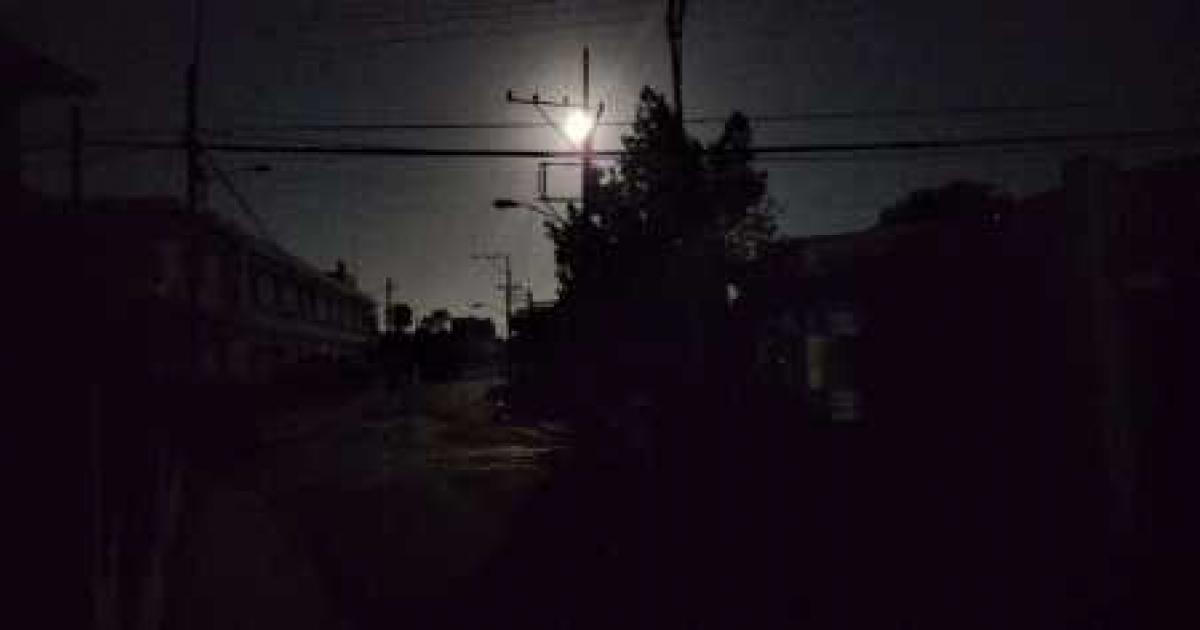
Blackouts have become a constant in Cuban reality. The inhabitants of the island suffer power outages for long hours every day, without respite for the full development of daily life, while the announcements made by theElectric Company They do not at all envision a rosy outlook.
For this Saturday,The estimates in the daily note issued by the Cuban Electrical Union (UNE) suggest an impact on daytime hours of 1,300 MW, on a day where the availability ofNational Electroenergy System (SEN) at 7:00 am it was 1,672 MW and the demand was 2,600 MW.
For the hours of highest consumption, an availability of 1,911 MW and a maximum demand of 3,300 MW is expected, which means that there will be a deficit of 1,389 MW. Therefore, if the expected conditions are maintained, an impact of 1,459 MW is forecast.
Every day the numbers of affected megawatts grow in the state entity's forecasts. However, Cubans have other experiences that are discordant with the estimates that the UNE announces to them every day.
In the interest ofCyberCuba, through their social channels, to find out how many hours of blackouts Cubans are experiencing, the responses were immediate and show prolonged suffering in the lives of residents, which is summarized in a few hours of electricity.
We offer a summary by province for this Saturday, according to the citizen report:
Hundred fires: 12 hours
Sagebrush: 12 hours
Holy Spirit: 4 hours with light and 7 without light
Blocked: 2pm
Mayabeque: 20 hours
Villa Clara: 19 hours
Pinewood of the river: 2pm
Santiago de Cuba: 7 hours during the day and from 7 p.m. every 4 hours until 7 a.m.
Bayamo, Granma: 22 hours
Palma Soriano, Santiago de Cuba: 12 hours daily
Remedios, Villa Clara: 7 hours
Sagua la Grande, Villa Clara: 6 to 8 hours daily
Baracoa, Guantanamo: from 8 a.m. to 2 p.m., and from 8 p.m. to 12 a.m.
New Peace, Mayabeque: 10 hours
Puerto Padre, Las Tunas: 10 to 12 hours
San José de las Lajas, Mayabeque: 10 hours
Manzanillo, Granma: from 10 to 11 hours
Pilón, Granma: 10 to 12 hours
In the comments section, people have drawn a panorama of the reality of today's Cuba, very far from what leaders say in their speeches.
“Greetings from Guantánamo, the city of lights, misery and hunger,” said one user.
“From Playa Girón (Matanzas). I am sleeping on a mat on the terrace on the third floor of my house. “What delicious air conditioning comes from the sea,” one Internet user ironically confessed.
The complaints also mention the discomfort of mosquitoes, so common in Cuba.
“Four (hours) with current and four (hours) with mosquitoes,” added another user.
Citizen fatigue in the face of a situation in which on average people spend between 10 and 12 hours without electricity is taking unthinkable limits, as was the case of ayoung father who, in Cienfuegos, broke the windows of a provincial government car as a protest against the prolonged blackouts in the city.
Identified as Eric Luis Acea Quevedo, 24 years old, the young man was detained and brutally beaten by Cuban police officers. “They almost killed him!” said Cuban activist Yamil Cuéllar, administrator of the well-known ‘Molinos’ group on this social network, on Facebook.
Even the sympathizer with the Cuban regime,Cándido Fabré composed a song dedicated to the blackouts, in which he describes what happens in homes and neighborhoods when the electricity is turned off and when it is restored.
Between blackout and light, was the title he gave to his song, the lyrics of which he shared on his Facebook profile.
In recent daysFabré, who prides himself on being a Fidelist, complained about the blackouts and reminded the government that "it charges quite dearly" for the service it takes away from the people.
"I would like some national leader to live with us so that he feels what we feel where, without turning on the power, they turn it off at any time for excessively long periods of time. There may be energy problems but we are paying a very high price," he said on Facebook.
In recent years, the fuel crisis, added to the deterioration of electrical installations, has worsened the energy crisis in Cuba.
What do you think?
COMMENTFiled in: